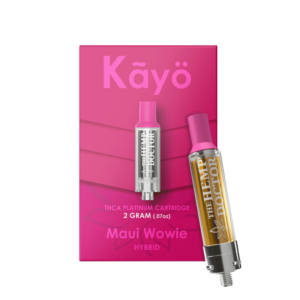Navigating the age restrictions for entering a dispensary can be confusing, especially with laws varying from place to place. This guide will help break down the requirements and answer the burning question: how old do you really have to be to enter a dispensary?
Federal vs. State Regulations
While federal law in the United States still classifies cannabis as illegal, many states have enacted their own regulations allowing the use of marijuana, either for medicinal or recreational purposes. These differences play a crucial role in determining who can legally enter a dispensary. For instance, states like New York have legalized both recreational and medical marijuana, allowing adults over the age of 21 to purchase cannabis products. This autonomy means that each state can specify its guidelines regarding age restrictions, which can differ significantly from federal standards.
The discord between federal and state laws creates a unique landscape for cannabis regulation. State laws, not federal mandates, primarily determine the legality of accessing dispensaries. In states where cannabis is legal, dispensaries are governed by state regulations, often requiring patrons to present identification proving their age. This divergence also shows how federal changes could dramatically affect state systems, yet for now, state laws hold the primary authority on who can buy and use cannabis products. This underscores the importance of staying updated with your state’s current laws and any potential federal changes.
Minimum Age Requirements
Typically, the minimum age required to enter a dispensary varies based on whether it serves medical or recreational purposes. For recreational dispensaries, the age is generally 21 and over, while medical dispensaries often permit entry to those 18 and older, provided they have a valid medical marijuana card. For example, in Nevada, medical patients who are 18 or older may access dispensaries if they hold a medical card, showcasing the allowance for younger medical users versus older recreational users.
These age requirements are not arbitrary; they are in place to ensure responsible usage and to comply with societal norms regarding legal adulthood. The medical need and legal adulthood balance in these laws is a way of recognizing both the potential therapeutic benefits of cannabis and societal expectations around age and maturity. In certain jurisdictions, even where recreational access remains restricted to those 21 and over, medicinal users can access cannabis more liberally, reflecting a nuanced approach to cannabis access.
While these legal age thresholds are fairly consistent, there are exceptions and nuances to consider. For example, certain states allow caregivers to purchase medical cannabis for patients under their care, bypassing the age limit if the patient is under 18. However, these caregivers must be at least 21 themselves. This demonstrates the variance and flexibility within state laws, each adapting based on community and policy needs. It’s crucial for visitors and locals alike to grasp these variations to ensure compliance and understand the rationale behind age requirements.
The Importance of State-Specific Laws
Different states have different rules, so it’s essential to familiarize yourself with the specific laws in your region. Some states might have additional guidelines or exceptions depending on local regulations or amendments. For instance, in Delaware, minors can use medical marijuana if an adult caregiver purchases it for them. In other states, medical marijuana patients may be subject to less stringent age requirements provided they have the appropriate medical documentation.
Understanding these state-specific variations is critical for both residents and visitors. While many states offer online resources to help individuals keep up with changing legislation, it’s still important to actively engage with these updates yourself. Moreover, some states provide resources and guidelines on official websites that explain both the process and the legality of purchasing and consuming cannabis, offering clarity on issues that might seem convoluted at first glance.
For anyone considering a move to or who travels frequently across different states, understanding these legal differences can prevent misunderstandings or accidental legal breaches. While some surrounding factors of cannabis usage remain consistent—such as driving restrictions and limitations on consumption in public spaces—age specifics can vary widely, showcasing the wide scope of the state’s regulatory freedom in managing cannabis within their borders. Ultimately, local knowledge can prove invaluable for banking on this freedom without inadvertently crossing the lines of the law.
International Dispensary Laws
Outside the U.S., the age requirements for entering a dispensary can vary widely. Countries like Canada have set the legal age for cannabis at 18 or 19, depending on the province. It’s essential for travelers to be aware of these laws to avoid legal issues. In some countries, like Uruguay, there’s a robust framework for the legal distribution and consumption of cannabis that visitors need to navigate carefully.
The cultural attitudes and legal status of marijuana vary significantly globally. Even within Europe, countries like the Netherlands are known for more lenient policies with Amsterdam’s iconic coffee shops, while other countries maintain strict prohibitions. This broad spectrum of legality requires travelers to conduct thorough research before assuming that cannabis is legally permissible despite its presence. Cross-border exchanges of cannabis products remain illegal in many regions, further complicating the legal landscape for international travelers who use cannabis for medicinal purposes.
For anyone planning to travel internationally, understanding these varied regulations is key to a hassle-free experience. Familiarize yourself with local customs and legal standards to minimize risks. Always check the specific laws of each destination country before you plan to use or transport cannabis products, especially as the penalties for non-compliance can range from fines to imprisonment, depending on the country’s specific stance on cannabis. Thus, strict observance can safeguard against potential mishaps when carrying or using cannabis on foreign soil.
Consequences of Non-Compliance
Failing to adhere to dispensary age requirements can lead to legal troubles. It’s vital to respect these laws to avoid any fines or more serious legal penalties. Penalties might include monetary fines, community service, or more stringent legal ramifications such as criminal charges. Particularly in states or countries with strict cannabis laws, being caught violating age restrictions or providing false identification can result in serious consequences.
It’s also worth noting that the repercussions of non-compliance extend beyond legal penalties. Some states or countries can impose additional sanctions, such as revoking a medical marijuana card or restricting re-entry into dispensaries in the future. For medical users, these outcomes can significantly impact individuals who rely on cannabis for pain management or other therapeutic needs, hence the gravity of staying within legal bounds resonates deeply within community practices.
Finally, it is crucial to recognize the broader public health and safety issues at play. The age limits reflect an acknowledgment of developmental science, personal responsibility, and societal protection. By respecting these legal thresholds, individuals not only protect themselves from legal trouble but also support broader health initiatives aiming to regulate and safely incorporate cannabis into society. Ultimately, understanding the possible outcomes of non-compliance serves as a strong deterrent against improper behavior and helps promote a respectful and informed approach to cannabis consumption.
Understanding the age requirements for entering a dispensary ensures that you’re informed and compliant with the law. Always check the regulations in your specific area and stay informed about the evolving nature of cannabis legislation.








